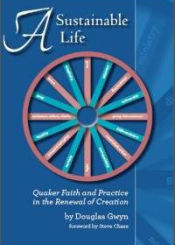Synopsis
A well-known Quaker historian explores the qualities of Quaker faith and practice that contribute to living sustainably in the world today. He explores such paradoxes as equality and community, unity and differentiation, integrity and personal discernment, and other aspects of life that Quakers have worked to bring into balance throughout their 350-year history. How have Quakers learned to create the kind of individual and community life that can prepare us to live fully and responsibly into a time of social and planetary change?
About the Author(s)
Doug Gwyn grew up in the pastoral stream of Friends in Indiana. After experiencing a call to ministry in 1968, he attended Union Theological Seminary in New York City, where he began to know unprogrammed Friends better. Over the years, he has followed his calling to ministry into work as a Friends pastor, as a writer for the American Friends Service Committee, and as a teacher at the Quaker study centers Pendle Hill and Woodbrooke. His training in biblical studies has informed his research and writing on early Friends and on current issues among Friends today. Doug has coined the term “bispiritual” to describe Friends like himself who are engaged and nurtured by both pastoral and unprogrammed Friends, in different ways. His wife, Caroline Jones, is a Friend and dharma teacher in the Insight Buddhist tradition.
Doug’s books include Apocalypse of the Word: The Life and Message of George Fox (1986), The Covenant Crucified: Quakers and the Rise of Capitalism (1995), Seekers Found: Atonement in Early Quaker Experience (2000), and Conversation with Christ: Quaker Meditations on the Gospel of John (2011). He also wrote the 2014 Pendle Hill pamphlet, But Who Do You Say That I Am? Quakers and Christ Today (PHP #426).






